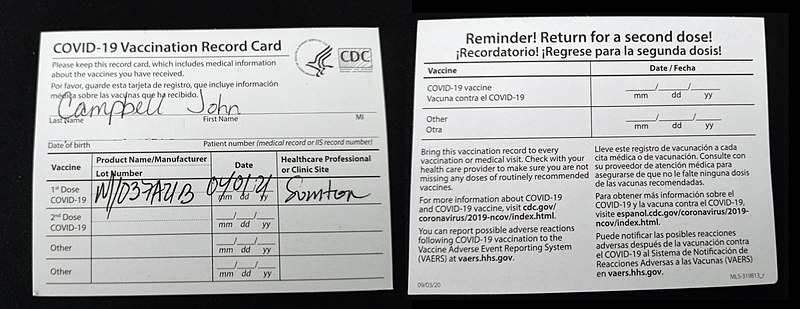One striking feature of the current UK care home and NHS staff mandate is that it does not allow an exemption for those who have proof of natural immunity. There is now evidence to suggest that natural immunity confers comparable protection to vaccine-induced immunity. Studies have found a durable immune response in individuals eight months after infection, as well as low infection rates amongst those who have previously had covid-19. Recent data also suggest that the antibodies elicited by vaccination have less potency and breadth than those generated by natural infection, although the overall neutralizing potency of plasma is greater following vaccination.
Meanwhile, from tomorrow care home workers in the UK will not be able to work if they don’t have a vaccine certificate and are not medically exempt. This vaccine mandate has been controversial, with providers raising concerns that as many 70’000 employees could leave the sector putting beds and care at risk. However, its advocates have argued that it is a proportionate public health measure due to the need to protect vulnerable care home residents.
Ultimately, the question here is one of necessity – is vaccinating those with natural immunity necessary to achieve an acceptable level of protection in care homes? Unless there is compelling evidence that immunisation is much more effective than natural immunity at reducing spread of the virus, the case for a vaccine mandate cannot be convincingly made.
There are still some gaps in our understanding of the differences between natural and vaccine-induced immunity. Furthermore, there are pragmatic reasons why it may seem attractive to focus on vaccination rather than natural immunity. Proof of vaccination status is simple, binary and verifiable, whilst immunity measures might be more complex and require additional resources. Yet, the UK government already recognises the protective effect of natural immunity, and the practicality of using it as sufficient proof of a low transmission risk. It is possible to obtain an NHS COVID pass with proof of natural immunity, shown by a positive PCR test result for COVID-19, lasting for 180 days from the date of the positive test and following completion of the self-isolation period. If needed, for the purposes of exemptions to professional vaccine mandates, it would be possible to obtain more robust proof of natural immunity with serological evidence of neutralising antibodies.

by Dominic Wilkinson, Jonathan Pugh, Julian Savulescu
The strength and durability of natural immunity is still not completely understood, and it does not always enjoy the same status as vaccine-induced immunity. In the USA, federal vaccine mandates do not allow an exemption for those with natural immunity. In a landmark judgment, a legal challenge to this failed at the end of September; however, this controversy is likely to continue.
Proportionality is one key ethical criterion in public health ethics; public health interventions are only permissible if their benefits outweigh their costs. However, another key ethical criterion is necessity; public health interventions are only permissible if they are necessary for achieving a certain benefit.
Yesterday, the health secretary, Sajid Javid announced that COVID vaccines would become mandatory for frontline NHS staff from April.
It is not justifiable to significantly restrict the liberty of those who are already immune to coronavirus by subjecting them to a vaccine mandate.
We believe that based on what is now known, individuals with sufficient proof of natural immunity should be granted a medical exemption to the care home vaccine mandate. This would be a simple ethical policy adjustment. It would prevent the unnecessary loss of valuable workers who do not pose an increased risk of transmitting coronavirus to vulnerable residents/patients.
Finally, it is important to be clear. Accepting this exemption from a vaccine mandate is not to support the anti-vaccination movement. Natural immunity is not better than vaccine acquired immunity just because it is ‘natural’. It is much much more risky to gain immunity through infection, than through vaccination. Care home and NHS workers who are not immune (naturally or otherwise), should have the vaccine.



